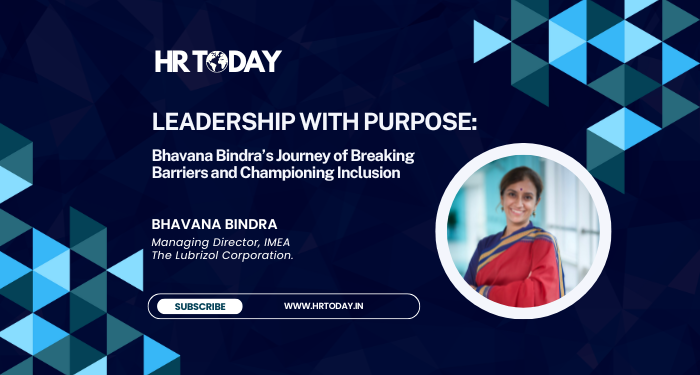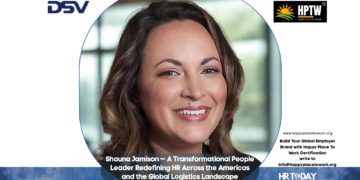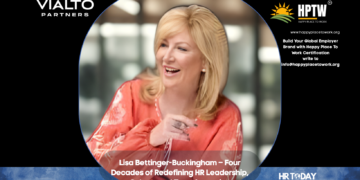


Helena Demuynck
Managing Editor
Welcome to Leader Speak on HR Today. I’m Helena Demuynck, a woman empowerment coach and Managing Editor of HR Today. Today, I’m honored to speak with Bhavana Bindra, an accomplished business leader who has broken through numerous glass ceilings throughout her impressive career. Bhavana is currently the Managing Director for the Lubrizol Corporation in India, Middle East, and Africa. She has held senior leadership roles at global organizations like Cummins, Boston Analytics, and DSM. Beyond her corporate responsibilities, Bhavana is a strong advocate for diversity, serving on multiple company boards, and is recognized for promoting feminine leadership traits and fostering more inclusive cultures. Bhavana holds an MBA from the Indian Institute of Management in Bangalore and has been honored with accolades such as the Economic Times 40 Under 40 Awards.
I’m eager to explore Bhavana’s journey, her insights on feminine leadership, and her advice for women aspiring to take on greater responsibilities. Congratulations on your position at Lubrizol, Bhavana. How do you experience the culture there, and what strategies do you have to further enhance it?

Bhavana Bindra
Managing Director, IMEA The Lubrizol Corporation.
Thank you, Helena. The culture and values at Lubrizol are one of the biggest reasons I am here. These values are not just statements or phrases; they are something we live by every day. I’m not a different person at Lubrizol and a different person at home—I’m the same individual. For me, those values matter all the time.
Let me share a bit about these values. First and foremost is operating safely and responsibly. A commitment to safety, sustainability, ethics, and compliance is of utmost importance. Whether it’s our employees, our customers, or our communities, their well-being is paramount. It’s important to us that we know our reputation depends on operating safely and responsibly. To me, this is something we wish for everyone—you wish it for yourself, your family, your friends. In the same way, from Lubrizol’s perspective, we wish it for everyone whose lives we touch on a daily basis.
The second value is the drive to win. We set the bar high to help ourselves and our customers succeed. It’s a win-win—unless they win, we don’t. For them to win, we must also be winning. The drive to win means we’re leading the industry with a certain urgency, thinking big, challenging the status quo, and, of course, delivering results. That is the second thing we go by here at Lubrizol.
The third value is to be better every day. You’ll hear me draw parallels even from our personal lives—we all aspire to be a better version of ourselves on a daily basis. It’s not like we’re perfection personified at any point in time. So, for us, being better every day is about applying a growth mindset to every task, pursuing productivity, learning, working on feedback, and continuous improvement. The idea is to grow and evolve into a better version of yourself every day.
The fourth value is about owning it. We ensure that each and every one of us is empowered to take action and make things happen. Of course, it’s not like every time you do something, you’ll be 100% successful, to begin with, but that’s where you learn. You learn from your failures, and the more you succeed, the more you expand from that perspective. Whether it’s our careers, our journey, or our future, we need to own it. This is a significant part of what we look for, not just overall but definitely from a leadership perspective. These are some of the areas we role model.
Another value is seeking diverse perspectives. You mentioned diversity, equity, and inclusion. To me, that’s about looking at different perspectives because that’s the only way you will change, improve, and, as I said, become better versions of ourselves. This involves understanding the external world as well as benefiting from a diverse workforce. That’s another one.
Lastly, we always work as one Lubrizol. We know we have the brightest minds to solve the challenges we face. We are confident that we can make it happen. The more we come together, the more we partner with each other, the better our chances of success. That’s a big part of who we are and the culture we drive towards. It distinguishes us from many other companies, and it’s the biggest reason I am here. I hope that answers your question, Helena.

Helena Demuynck
Managing Editor
Yes, that beautifully captures the essence of your values. It’s inspiring to see how these values resonate with your personal principles. Reflecting on your career, what experiences helped shape your values and leadership approach?

Bhavana Bindra
Managing Director, IMEA The Lubrizol Corporation.
I’ll probably stick to a couple of what I already touched upon. I started with the Boston Consulting Group (BCG) as a consultant. Starting at a place like BCG was perhaps an opportunity that everyone should have as their first job. The emphasis on owning it, looking across—not just focusing on your silo—and being empowered to own and drive things, is something I learned very early on in my career, thanks to the amazing set of people I had the opportunity to work with and an organization that has an equally strong value system.
To me, a lot of my career choices have been influenced by the people I’ve had the chance to work with. It’s a big part of what makes me who I am and drives my decision-making. It’s always about the people and the potential they bring. As I moved on in my career, it’s easy to say that you came in with a certain qualification, and there’s an assumption of your IQ levels, etc. But at the end of the day, in the real world, unless you’re humble about what you don’t know, you won’t learn as much as you should.
As I mentioned, to be a better version of yourself every day, you need to keep learning. That’s how my journey has been—making sure every day adds something to what I have known, understood, and reflected upon. Whether it’s interactions, technical skills, or understanding how to deal with and strategize with teams, and how to drive teams to make things happen. All of that is learning and experience. Starting from owning it to being in a process of continuous learning and always acknowledging that everyone you work with knows something more than you do, which means they bring a lot to the table. An interaction will only add to your journey as you move along.
More than that, I think the third thing I would emphasize is never being in your comfort zone. The day you find yourself in a comfort zone, you’ve probably stopped adding to yourself at the rate you could be. For me, the moment I realize I’m in a comfort zone, I need to do something different. I need to dig myself out. Most of the time, I don’t even go deep enough into that zone—if I realize I’m a little bit comfortable, I pull myself out of it.
This approach has driven my career, and it’s something I encourage in others. I think people have so much potential, and because people are at the heart of my journey, I want to help them see their potential. Not everyone gets comfortable with this, though. A lot of people ask, “Do I really need to do this?” But as they see how they blossom when they’re pushed to be better versions of themselves, that’s when the real satisfaction comes. Of course, some people would rather not go through that, and it’s a personal choice. But for me, in a nutshell, these are the things that have guided my journey and the areas that I live by in my profession.
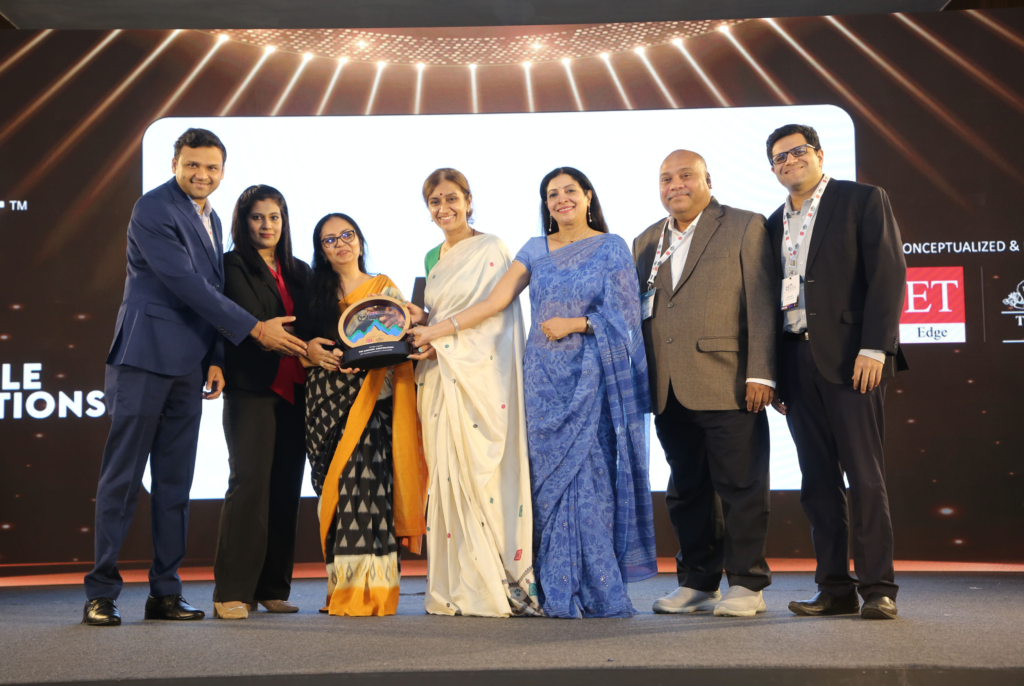

Helena Demuynck
Managing Editor
You’ve been a role model for many, both within your organization and beyond. Did you have role models or mentors who helped guide you along your path? What did you learn from them?

Bhavana Bindra
Managing Director, IMEA The Lubrizol Corporation.
A lot of who I am today is shaped by what I’ve picked up over the years from various people, including my family. My mother, for example, instilled in me the value of caring for people selflessly. She has always supported my career, even helping to raise my daughter so I could focus on my profession and achieve the best that she thought I deserved.
My father worked with the same organization for 42 years. He was disciplined, hardworking, and loyal. Watching him, I picked up the value of being clear on what needs to be done, being committed to it, and going to any length to meet that commitment.
My spouse has been another significant influence. He never shies away from questioning the status quo—he’s like the devil’s advocate. If you say X, he’ll say why X? And I’ll ask, “What’s the answer that you won’t question?” But I’ve learned from him the importance of questioning status quo, being bold and confident in taking a stand, and being decisive.
There’s also my elder sister, who believed in potential. This belief in what people can achieve has become central to my leadership approach. Every time I see someone, I think, “Oh my God, they can do so much more than what they’re currently doing.”
So these people, with their different strengths and perspectives, have deeply influenced me and helped shape the leader I am today.

Helena Demuynck
Managing Editor
That’s a beautiful blend of masculine and feminine traits. I see the proactivity, getting things done, but also the caring and community aspects. Feminine leadership is something I’m passionate about, and I’ve noticed that women sometimes overemphasize their masculine strengths while neglecting their feminine capacities. What unique strengths do women bring to the table in organizations that we sometimes tend to overlook?


Bhavana Bindra
Managing Director, IMEA The Lubrizol Corporation.
It’s not the first time I’ve been asked this question, and it’s probably not the last time I’ll say this—honestly, I’ve always viewed leadership as leadership, not as something specific to a gender. There are conscious and unconscious biases, especially depending on the cultures we come from. For instance, sometimes if you see a woman being assertive, you might perceive her as assertive. In another person’s perspective, she may be seen as aggressive. There’s a thin line between being assertive and aggressive, but there’s an even thinner line in the perception of assertiveness versus aggression.
From my perspective, I think there are traits that leaders have, and whether they are masculine or feminine is not something I’ve overly emphasized from the beginning of my career. You rightly pointed out that the traits I highlighted from my role models are a combination of both. For me, it’s the best of all worlds that I’ve been mostly looking to pick up.
Can men be more caring, or is caring something more associated with women due to evolution? Yes, I would say these things come naturally, but I’ve probably experienced equally caring men and equally uncaring women. So for me, I think because I was brought up where gender distinctions weren’t made, it wasn’t like, “Just because you’re a girl, you shouldn’t do something,” or “Because you’re a girl, you’re expected to do something.” Those distinctions didn’t get made early on in my life, so as I view myself as a professional or a leader or a team player, it’s less about gender.
Having said that, it’s also important to recognize that when you’re a woman leader, especially in a society that has been very patriarchal, you need to understand that sometimes the reactions you get might be influenced by the conditioning that others have, and not so much by how you said or what you did. That’s something that, if you’re cognizant of, you deal with it better. If you don’t realize it, you might punish yourself, thinking, “Oh my God, I shouldn’t have done it this way,” without realizing that it’s kind of 50-50. You yourself are conditioned in a certain way, and the other person is equally conditioned in a certain way.
So to me, it goes very deep, and I think the more we focus on a neutral stand, the easier it is to deal with it. While being conscious that yes, there are some nuances that still govern the professional corporate world for sure.

Helena Demuynck
Managing Editor
Absolutely. It’s like you say—in some ways, it’s a gender thing, but in many ways, it’s not. The traits and qualities we label as feminine and masculine have historical and cultural roots, but they exist within all of us. Sometimes, bias, judgment, and education lead us to activate some traits while suppressing others, which creates imbalance. For women, in particular, it can be challenging to show up authentically without the interference of judgments. How do you see the impact of increasing women’s representation on boards, particularly in India?


Bhavana Bindra
Managing Director, IMEA The Lubrizol Corporation.
To me, I think—so I’ll talk from an India perspective, just because I’m more informed and involved in that. We’ve got a mandate for companies of a certain category to have women directors, independent directors on the board. To me, it’s kind of a mixed reaction right now in terms of evolving, because yes, it’s like when companies talk about adding gender diversity, it’s like, “I need a number over there.” In the same way, when we put out mandates for women on the board, it starts being about numbers.
But the true sense of it happens when it goes beyond just adding numbers. The day the selectors for a board decide to choose a woman not because they have a seat for a woman to fill, but because they saw the candidate as a deserving director-level candidate, that’s when the change will truly happen. Having said that, change has to start at the top. If we start these conversations at the board level, then at the CXO level, the trickle-down effect will happen.
Right now, it’s more extreme. Either you’re hiring a lot at the fresher level because you’re able to get that pipeline, but somewhere in the middle, it starts dwindling, or you’re driving it from the top. For me, the twin approach needs to be in effect—both moving upwards with the freshers coming in and the trickle-down effect of women in leadership positions pushing for more hiring and less of what we call the “merit trap,” where you’re just looking for similar people like yourself. That’s when the real change will come, and it’s not just about bringing in women and ticking a box.
For example, if you get a woman on the board but never want to listen to her opinion or seek her input, assuming she isn’t able to have a voice on the board, it defeats the purpose. A lot of people are just ticking the box by bringing in women they’re familiar with from their family, depending on the nature of the business. That’s why I said it’s a mixed bag, but the needle is moving. The presence is being felt. The entry has been made. Now, it’s almost like I say—you may get a foot in the door, but to stay in the room, you need to prove your worth. And that needle is definitely moving, for sure.

Helena Demuynck
Managing Editor
You’re certainly one of the people making that needle move. As a final question, what would be your top tip for women or anyone aspiring to take on greater leadership roles?

Bhavana Bindra
Managing Director, IMEA The Lubrizol Corporation.
Wow, it’s difficult to pick just one. But I would say, Helena, at no point in time should anything be assumed as an entitlement. Everything is something you should be working for on a daily basis. Because Rome wasn’t built in a day, and neither does leadership dawn upon you just because you were born on a certain day and at a certain time, with the stars in the right alignment. Leadership is about proving yourself every day, continuously. And you need to enjoy that journey because if you’re not enjoying it, then it’s not worth it. So that’s how I would summarize it.
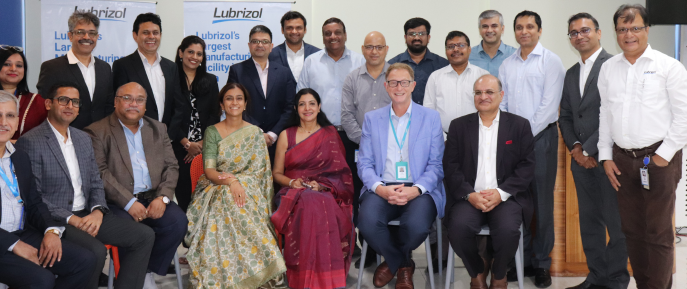

Helena Demuynck
Managing Editor
That’s a beautiful insight—persistence in the small steps, being intentional, and staying on track. Thank you so much, Bhavana, for your thoughtful and valuable answers. It’s been an honor to learn from you, and I’m sure this will inspire our HR Today audience.

Bhavana Bindra
Managing Director, IMEA The Lubrizol Corporation.
Thank you, Helena. I really appreciate the way you articulated what I was trying to convey. It’s been a pleasure.
